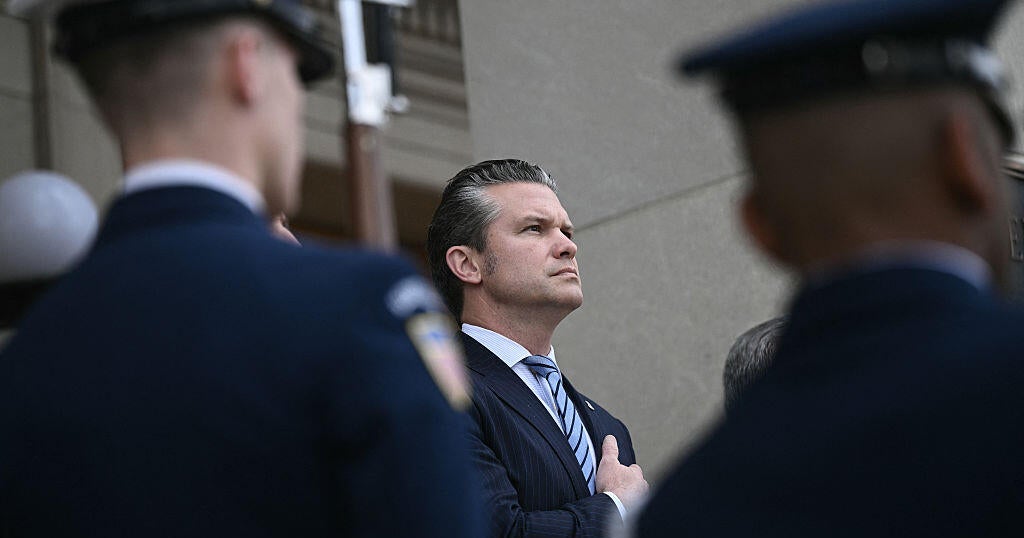The Pentagon has recently issued a directive to military leaders to review and potentially remove educational materials that pertain to diversity, equity, and inclusion (DEI), particularly those associated with gender identity and anti-racism. The decision marks a significant shift in the policies of the Trump administration that aims to address what they consider divisive concepts within military education. As a result, various military institutions have been instructed to scrutinize their library materials and sequester those deemed incompatible with military missions.
| Article Subheadings |
|---|
| 1) Overview of the Pentagon’s Recent Order |
| 2) Purpose Behind the Directive |
| 3) Specifics of the Materials to be Reviewed |
| 4) Impact on Military Educational Institutions |
| 5) Responses from Military and Educational Leaders |
Overview of the Pentagon’s Recent Order
On May 6, the Pentagon sent a directive to military leaders ordering them to conduct a comprehensive review of library materials related to diversity, gender issues, and anti-racism. The deadline for this review is set for May 21, a mere two weeks from the announcement. This order aligns with the Trump administration’s broader initiative aimed at reshaping how federal agencies, including the military, approach topics of diversity, equity, and inclusion.
The Pentagon spokesman, Sean Parnell, mentioned in a statement, “The Department’s instructional materials should be mission-focused and not promote divisive concepts and gender ideology.” This underscores the administration’s commitment to remove materials that do not align with what they perceive as core military missions.
Purpose Behind the Directive
The primary intent of this review is to eliminate educational content that the administration believes promotes divisiveness or ideological bias a concern expressed by various leaders within the military. By focusing on mission compatibility, officials aim to streamline military education and training, thereby ensuring that resources are purposeful and aligned with operational priorities.
Supporters of this directive argue that it is a necessary step towards creating a focused military environment where all personnel can function without distractions stemming from socio-political debates about DEI. Conversely, many critics argue that such actions are regressive and deny essential perspectives on diversity and inclusion.
Specifics of the Materials to be Reviewed
The directive calls for military leaders to identify library materials that may encompass concepts such as “critical race theory,” “gender identity,” “white privilege,” and “anti-racism.” These terms, among others, have been highlighted in the order as focal points for the initial phase of the review process. A temporary panel, named the Academic Libraries Committee, has been established to assist with the identification of these materials and to provide ongoing guidance throughout the process.
The panel will also develop a list of search terms to help leaders and educators recognize materials that need to be sequestered for further evaluation. This action aims to ensure that any materials retained align closely with military objectives.
Impact on Military Educational Institutions
Several military educational institutions have already taken steps to comply with this order. For instance, the United States Naval Academy has reportedly removed hundreds of books from its libraries, focusing mainly on subjects such as feminism, civil rights, and the Holocaust. Such removals illustrate the tangible implications of the Pentagon’s directive on educational content available to military personnel.
This initiative raises questions among educational leaders about the broader impacts of censorship and the potential erasure of significant historical perspectives from military education. Critics warn that this could create an echo chamber effect where diverse viewpoints are systematically removed, limiting critical discourse within military ranks.
Responses from Military and Educational Leaders
The responses to this directive have been mixed, showcasing the polarized nature of current debates over education and diversity in the U.S. military. Many military leaders are in support of the initiative, citing the need for a cohesive focus on mission-oriented content. However, educational leaders and advocates for diversity argue that removing materials associated with DEI not only stifles critical thought but may also undermine morale and inclusivity within the ranks.
Throughout discussions, calls for balance have emerged, suggesting that while operational clarity is vital, a nuanced understanding of diversity and the complexities of social issues is equally essential for modern military leadership.
| No. | Key Points |
|---|---|
| 1 | The Pentagon has ordered a review and potential removal of DEI-related materials. |
| 2 | The directive is in response to claims of divisiveness associated with various educational topics. |
| 3 | Military leaders must complete the review by May 21, with support from a temporary panel. |
| 4 | Various military institutions have already begun removing contentious materials. |
| 5 | Responses to the initiative reveal a divided opinion on educational censorship in the military. |
Summary
The Pentagon’s directive to review and potentially remove DEI-related educational materials signifies a momentous shift in military education, reflecting broader socio-political tensions. While supporters argue it is a necessary step towards a unified military focus, critics warn about the significant implications of censoring material. The outcome of this initiative could set a precedent for how military education evolves in the context of societal changes and demands for diversity, equity, and inclusion.
Frequently Asked Questions
Question: Why is the Pentagon reviewing educational materials?
The review aims to eliminate materials that the Trump administration regards as promoting divisiveness and misaligned with military objectives, focusing instead on creating a mission-focused environment.
Question: What types of materials are being targeted for removal?
Materials related to diversity, equity, and inclusion, particularly those linked to concepts such as critical race theory and gender identity, are under scrutiny.
Question: Who is involved in the review process?
Military leaders are leading the review, supported by a temporary panel called the Academic Libraries Committee, which guides the identification and evaluation of materials deemed potentially incompatible with military missions.
